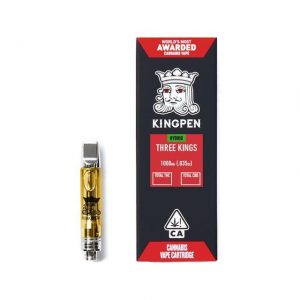Cannabis
Therapeutic utility of the endocannabinoid system in demyelinating diseases
Therapeutic utility of the endocannabinoid system in demyelinating diseases
The demyelinating diseases are medical conditions in which the main pathogenic process is directed against the myelin sheath covering the axons of neurons and enables proper conduction of nerve impulses. The most frequent demyelinating disease is multiple sclerosis (MS), which is characterized by a decrease in the number of myelin-producing oligodendrocytes in the central nervous system (CNS) and by the appearance of a process of progressive axonal degeneration, which underlies the symptomatology of the disease.
MS is a chronic disease of early-onset, the clinical manifestations of which are diverse, and include loss of strength and / or sensitivity in the extremities, decreased visual acuity, pain, spasticity, ataxia, and bladder dysfunction. According to the Spanish Neurology Society (SEN), this health problem constitutes the first cause of disability due to illness among Spanish youth between 20 and 40 years old, and the second cause of disability in general, after traffic accidents, in the same population segment. In the past 15 years, both the prevalence and incidence of MS have doubled, and this disease already affects 2.3 million people worldwide. In Spain, 47,000 people currently suffer from MS and about 1,800 new cases are diagnosed each year. Due to its epidemiology and chronic disabling nature, Buy cannabis oil online
First described by Jean-Martin Charcot in 1868, the etiology of MS remains to be determined. Among the pathological features that characterize MS, we can mention the appearance in the CNS of inflammatory demyelinating foci, with the presence of T cells, microglia, and reactive astrocytes, which release different pro- and anti-inflammatory cytokines, as well as trophic factors involved in the disease. The symptoms of MS generally appear as outbreaks or episodes of neurological deficit of variable duration, associated with the appearance of a new demyelinating lesion or the reactivation of a pre-existing one, in the CNS. During the progression of the disease, the patient also accumulates a sustained neurological disability, the result of the neurodegenerative process that characterizes this medical condition.
It is important to note that the destruction of the myelin sheath in MS triggers its repair or regeneration mechanisms, in a process called remyelination. Most mature myelin-producing oligodendrocytes in the CNS are generated during postnatal development from immature cells, called oligodendrocyte precursors. These oligodendrocyte precursor cells they persist in the adult brain and are capable of generating new mature oligodendrocytes in situations of myelin damage. The regeneration of the myelin sheath in MS depends, therefore, on the presence in the demyelinating lesions of the oligodendrocyte precursor cells and their correct maturation. The remyelination process promotes the survival of demyelinated axons and therefore attenuates neurological deficits in animal models of MS. For this reason, the identification of factors that promote the repair of the myelin sheath is today a priority objective in the search for new therapies in MS. Dank vapes for sale
The therapeutic potential of the endocannabinoid system for the treatment of MS has been extensively studied for the past 20 years. It is now well established that cannabinoid compounds improve neurological deficits associated with neuronal damage and attenuate the inflammatory process in animal models of MS. At the clinical level, medical treatments with cannabinoid derivatives have also shown beneficial effects in the management of certain symptoms associated with MS. From a mechanistic point of view, the positive effects of cannabinoid compounds in experimental models of myelin damage involve activation of CB 1 and/or CB 2 cannabinoid receptors.located on a wide variety of cell substrates. The CB 1 and / or CB 2 cannabinoid receptors are the main signaling proteins of the endocannabinoid system and mediators of most of the biological effects of the cannabinoid compounds present in cannabis derivatives.
CB 1 cannabinoid receptors are expressed at high levels in neurons and are considered responsible for the neuroprotective effects associated with MS treatment with cannabinoid compounds. Pioneering studies in this field have shown more than a decade ago that mutant mice lacking CB 1 receptors they develop more pronounced neurological symptoms in experimental models of MS and are less tolerant of excitotoxic insults that promote axonal degeneration in this medical condition. On the other hand, cannabinoid compounds exert anti-inflammatory effects in experimental models of MS through the activation of cannabinoid CB 2 receptors. CB 2 receptors are primarily expressed on T cells and microglia, primarily involved in the inflammatory reaction that accompanies and contributes to the destruction of myelin. Activation of cannabinoid CB 2 receptors by natural or synthetic cannabinoid drugs, it inhibits the pro-inflammatory function of these cell types, and contributes to the control of the inflammatory process in animal models of MS. Finally, oligodendrocytes and their precursors also express CB 1 and CB2 receptors implicated in the beneficial effects of cannabinoid compounds in MS. Buy cannabis oil online
According to recent studies, cannabinoid compounds protect mature oligodendrocytes from excitotoxic damage through CB 1 receptors.expressed in these cells. Cannabinoid drugs have also been reported in experimental models of MS to facilitate myelin sheath repair by acting through cannabinoid receptors expressed in oligodendrocyte precursors. Based on the aforementioned, we could expect anti-inflammatory effects from cannabinoid therapy in patients with MS, which would contribute to the control of the acute worsening associated with the appearance of outbreaks, as well as protective effects on neurons and oligodendrocytes, as well as regenerators of the myelin sheath, which would slow down the progression of the disease.
Research regarding the possibilities of the endocannabinoid system in the treatment of MS has crystallized in the commercialization of the first cannabis-based pharmaceutical preparation approved for clinical use, called Sativex. It is a medicine composed of Δ 9 -THC, a natural agonist for the CB 1 / CB 2 receptors, and cannabidiol, which lacks affinity for both cannabinoid receptors but has neuroprotective properties in preclinical models. Sativex has been used in Spain for 7 years as a treatment for symptom improvement in adult patients with moderate or severe spasticity due to MS, who have not responded adequately to other antispastic drugs. However, the clinical utility of cannabinoid compounds in general, and of Sativex in particular, in MS, is currently a matter of debate among the scientific community. The therapeutic benefits of cannabinoid drugs in MS patients involve the use of high doses of these compounds, which usually involve the appearance of adverse reactions in the psychiatric sphere, among other side effects, often associated with indiscriminate activation of CB receptors. one located in neuronal populations. The studies carried out to date also suggest that the prolonged use of cannabinoid compounds at high doses generates pharmacological tolerance to their neuroprotective effects dependent on the activation of CB 1 receptors, and limits their possibilities in clinical practice. Buy dank vape carts online
The interest of the scientific community for the endocannabinoid system as a pharmacological target in MS has moved, in recent years, from the cannabinoid receptors CB 1 and CB 2to enzymes responsible for the hydrolysis of their endogenous ligands, the endocannabinoids. Like the cannabinoid compounds present in the cannabis plant, endocannabinoids prevent neurological damage in MS by acting through their targets, the cannabinoid receptors. It is for this reason that genetically modified mice that lack CB 1 receptors show worse evolution when subjected to demyelinating insults. Endocannabinoid ligands are naturally degraded in the CNS by the activity of specific enzymes. This process of degradation or hydrolysis of endocannabinoids limits the protective activity of cannabinoid receptors. In particular, the enzyme called monoacylglycerol lipase (MAGL) is responsible for approximately 85% of the degradation of the most abundant CNS endocannabinoid compound, 2-arachidonylglycerol (2-AG). Drugs that inhibit MAGL increase brain levels of 2-AG, thereby facilitating the activation of CB 1 and / or CB 2 cannabinoid receptors. by this endocannabinoid compound. In relation to MS, it has been described that the degeneration process of the myelin sheath involves changes in the levels of expression of the different elements that determine endocannabinoid signaling – CB 1 / CB 2 receptors and enzymes of synthesis and degradation of compounds endocannabinoids- in the injured tissue. On the basis of these observations, it is proposed that the MAGL inhibitor drugs would increase the availability of 2-AG preferentially in demyelinating lesions, thus optimizing the relationship between the beneficial and undesirable effects associated with the treatment. Buy CBD tinctures
The therapeutic utility of MAGL in MS has recently been validated at the preclinical level. Recent studies by independent laboratories indicate that the pharmacological inactivation of this enzyme attenuates the degeneration of the myelin sheath, the inflammatory reaction, and neurological damage, while promoting remyelination processes, in different animal models of MS. These results open new avenues for the development of drugs that act selectively on the MAGL enzyme for the treatment of MS. While the rational use of MAGL inhibitors in clinical practice requires a detailed analysis of the mechanisms underlying the therapeutic benefits and possible adverse effects of these compounds in MS patients.








